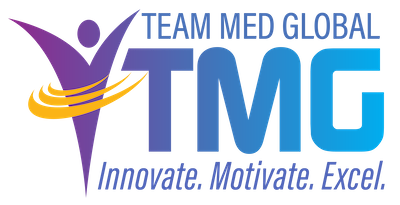 Change is a constant in the healthcare industry, particularly in administrative roles where Medical Services Professionals (MSPs) operate. Whether it’s new regulations, shifting healthcare policies, or advancements in technology, effectively managing change is crucial to ensure the seamless operation of medical facilities. Here’s how MSPs can adeptly navigate the waters of change management, thereby enhancing our effectiveness and ensuring that our teams remain adaptable.
Change is a constant in the healthcare industry, particularly in administrative roles where Medical Services Professionals (MSPs) operate. Whether it’s new regulations, shifting healthcare policies, or advancements in technology, effectively managing change is crucial to ensure the seamless operation of medical facilities. Here’s how MSPs can adeptly navigate the waters of change management, thereby enhancing our effectiveness and ensuring that our teams remain adaptable.
Understand the Scope and Impact of Change
The first step in effective change management is to fully understand what the change entails and its potential impacts on the department and broader organization. For MSPs, this could mean new credentialing software, updates in compliance regulations, or a reorganization of medical staff. Take the time to thoroughly analyze the proposed changes and anticipate both challenges and opportunities that could arise.
Communicate Effectively
Once you understand the changes, the next step is to communicate them clearly and effectively to all stakeholders. This includes your immediate team, the medical staff you support, and possibly other administrative departments. Develop clear, concise messaging that explains the reasons for the change, the benefits it brings, and how it will be implemented. Regular updates and open communication channels are essential to ease the transition and to quell any concerns that may arise.
Foster a Culture of Flexibility and Learning
Change is often accompanied by a learning curve. As an MSP, one of your roles in change management is to foster an environment where learning and flexibility are valued. Encourage your team to actively engage with new systems and processes. Provide training sessions, create resources for self-learning, and set up a support system where team members can ask questions and discuss challenges. Recognizing and rewarding adaptability and initiative can also motivate your team to more willingly embrace change.
Lead by Example
In times of change, your team will look to you for guidance and reassurance. Demonstrating a positive attitude toward change and a willingness to adapt sets a powerful example. Actively engage with new systems and processes before they are rolled out and share your experiences with your team. Show that while adapting might be challenging, it is also an opportunity for personal and professional growth.
Monitor Implementation and Gather Feedback
As changes are implemented, closely monitor the process and gather feedback from various stakeholders. This allows you to identify any issues early on and adjust strategies as needed. It’s important to have mechanisms in place to effectively collect feedback – whether through meetings, anonymous surveys, or direct emails. Actively listen to the concerns and suggestions of your team and other stakeholders, and use this information to improve.
Evaluate and Celebrate Success
After the change has been implemented, evaluate its outcomes against the initial objectives. Review what worked well and what could be improved for the future. Celebrating milestones and successes not only boosts morale but also reinforces the positive aspects of embracing change. Whether it’s a small gathering, a thank you note, or public acknowledgment of the team’s efforts, recognition goes a long way in building a resilient and motivated team.
Change management is an integral part of an MSP’s role in healthcare administration. By understanding and communicating changes, fostering a learning culture, leading by example, monitoring progress, and celebrating successes, you can more effectively manage change. These strategies not only help in smoothing transitions but also empower your team to handle future changes with confidence and efficiency. Embracing these practices will ensure you and your team are well-prepared for the dynamic nature of the field and the MSP profession.
